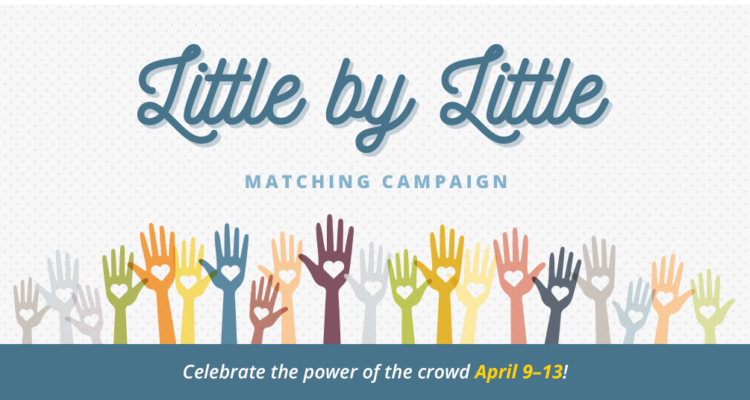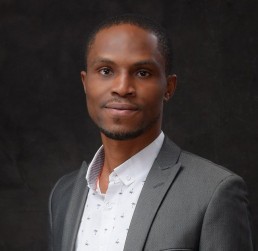
When was the last time you were actively involved in an informal conversation about the SDGs? And no, I wasn’t referring to some forum or conference, just the regular chit chat amongst friends. Did you have to think long and hard or did you get a quick and vivid memory flash? I daresay that it was the former. Who or what stakeholders are responsible for this silence or communication gap? Let’s begin by talking about one major, chief driver of the development sector- non-governmental organizations (NGOs).
Non-Governmental Organizations Role in Driving SDGs
It’s been three years since world leaders including Nigeria committed to ending extreme poverty everywhere, fighting inequalities and tackling climate change through the implementation of the 17 global blueprint goals for sustainable development. Many NGOs in the country and even the government has received both multilateral and bilateral donor support to the tune of hundreds of millions of dollars to power concerted action on the SDGs including advocacy efforts and implementation. I think these investments show that there is a desire to facilitate communicating the SDGs and getting people to care about them.
But it seems to me that there are strong conversations going on around the SDGs but here is what I have noticed and this is coming from the combination of both my outsider and insider perspective, in my work with NGOs. There’s been the difficulty of taking the SDGs to the mainstream space in Nigeria.
So, the question is, how do we get people to care about the sustainable development goals? How do you get people to care about climate change, about poverty, about gender and inequality issues? And not just care about them but actually take aggressive action concerning them.
As such, this disconnect between the NGO space and the mainstream society poses a key challenge to the actualization of the SDGs. Its like if you attend three separate NGO hosted development events or conversations, you would see the same people. The NGO circle is really tiny. It’s as though we are speaking to ourselves about the SDGs, even on social media, it’s like the NGO world is a closed hub of like minds but for actual change to happen, we need to go beyond that circumference, we need to mainstream conversations.
Challenge in Mainstreaming the SDGs.
Language Barrier Challenge
Why is this so? I think the reason for this challenge is the fact that the lingua franca for NGO communications is characterized by technical language. And so, the development language by default appeals to only those who work in that space.
Let me paint a picture to explain what I mean. If you use social media in Nigeria or follow the news, you’re likely to recall the #AgbadaChallenge trend that went viral a while ago, a calculated PR strategy in lieu of a movie release or other trends like slay queens or Falz’s Sweet Boys Association trend or the intense political conversations and debates between the Atikulatednation and the Buharists camp? Now, what do you think would happen if conversations around any of the goals say climate change, trends like any of the aforementioned examples? How do we get the goals to be as prevalent as these mainstream media and entertainment conversations?
The fact is there needs to be concerted efforts to actually translate the SDGs into mainstream language. If you take the UN language of sustainable development goals and try to push it directly, it won’t work.
A very good example of this is the Little by Little campaign launched in March this year, a first of its kind collaboration between Google and Common Ground-an initiative of the world’s six largest advertising groups in support of the SDGs.

Source: GlobalGiving Insider BlogThe campaign leveraged on the power of global influencers and the YouTube platform in the US, UK, Nigeria, India etc. to mobilize people to carry out 2 billion acts of good and contribute to ending poverty, reducing inequalities and tackling climate change with little acts.
How Do We Convince People to Care About the SDGs?
Language Translation
One simple yet effective way of tackling the language barrier challenge is translation.
If we can take these goals and communicate them in relatable, comprehensive, fun, humorous forms, individuals can be inspired to undertake action for the goals. We can accomplish this by first understanding the inclinations and lifestyle patterns of our target audience and then leverage on these mediums to coordinate interest in and action for the goals.
For example, this demographic bracket likes or cares a lot about music, why not speak to them about the SDGs through music? A placard saying “No To Climate Change” may not be effective but music can reach them.
How about we consider customizing the SDGs to become fluid for every medium, be it music, art, dance, comedy, politics etc.? How about we strategically redefine and convert the goals through various medium and styles? This way, it comes in a language that the mainstream audience can understand. And what does our mainstream demographic brackets care about? We care about comedy, about short consumable content, skits, videos, we enjoy discussing people, celebrities, gossip, trivia issues, we care about fun, entertainment etc. so we need to connect to them through these languages.
More concerted effort has to be done in this regard.
Interest-Driven Conversations
An additional way to get people to care about the SDGs is by expressing clearly the benefits they stand to gain in taking actions for sustainable development. You have to convince me on how acting and caring for the goals is in my own self-interest.
Do not appeal to my sense of passion to save and make the world a better place. Rather, appeal to my capitalist interest, my most basic selfish desires, make me understand how acting for the SDGs will be profitable to me, how it will affect my life and pocket bottom line.
If we can paint that picture, individuals will act because they are not acting to benefit some vague percentage or statistics of people they may never interact with but they are acting to benefit themselves, their lives and families.
Simplify Actions Campaigns for the Goals
A third strategy is to make it very easy for people to take actions. People should be able to take immediate action in their immediate space or community. It shouldn’t be complex or require difficult conditions for one to act on the SDGs.
There is a need for NGOs to articulate clear calls to action for everyone. This should be context specific, we need to have a clear call to action for students and every other demography, we should curate compelling stories of remarkable individuals already taking action to inspire peer action. In appealing to the human need for affirmation or actualization, we should create a reward system that grants some form of fellow award status to these individuals as a way to inspire others to take action as well.
This contributes to reinforcing the 17th goal of Partnership for the Goals which is targeted at strengthening all stakeholders and actors to intensify action for sustainable development in every regard.
Brand Messaging
NGOs will need to start positioning themselves as lifestyle brands. NGOs that want their work to gain traction in the Nigerian context need to start making themselves into relatable brands that can be approached and engaged by individuals to take action.
An example is ONE, a non-profit organization that coordinates strong lobbying forces to pressure world leaders to implement policies that facilitate achievement of the SDGs. ONE works with volunteer campaigners and youth ambassadors to raise awareness with their voices in fighting poverty and preventable, treatable diseases. Her methods include organizing concerts to promote advocacy efforts around HIV/AIDS and poverty issues by giving people a fun, enjoyable opportunity to take action by volunteering at the concert real-time as well as virtually.
NGOs need to be fun and engaging and have a personality of their own. The SDGs cannot be a boring thing. Let us transcend the high policy discussions for the summits and boardroom meetings but when it comes to engagement, advocacy and reaching out, it has to be interesting, fun and entertaining like productions from Nollywood or African Magic or MTV base.
Are there any other ways NGOs can mobilize interest and action for the SDGs that I missed? Please share in the comment section. I would love to learn from your ideas.

About the Author
Century Favour is an Entrepreneur, Strategy, Technology, Marketing and Creative professional passionate about driving economic & social impact. Through his ventures (Endgame The Strategy Company, Do take action & centuryfavour.com) he works to ensure that People, Businesses, Governments & Non-Profits grow, succeed, achieve their strategic objectives, drive sustainable development and positively shape the future of the people & communities they serve.

About the Author
Century Favour is an Entrepreneur, Strategy, Technology, Marketing and Creative professional passionate about driving economic & social impact. Through his ventures (Endgame The Strategy Company, Do take action & centuryfavour.com) he works to ensure that People, Businesses, Governments & Non-Profits grow, succeed, achieve their strategic objectives, drive sustainable development and positively shape the future of the people & communities they serve.